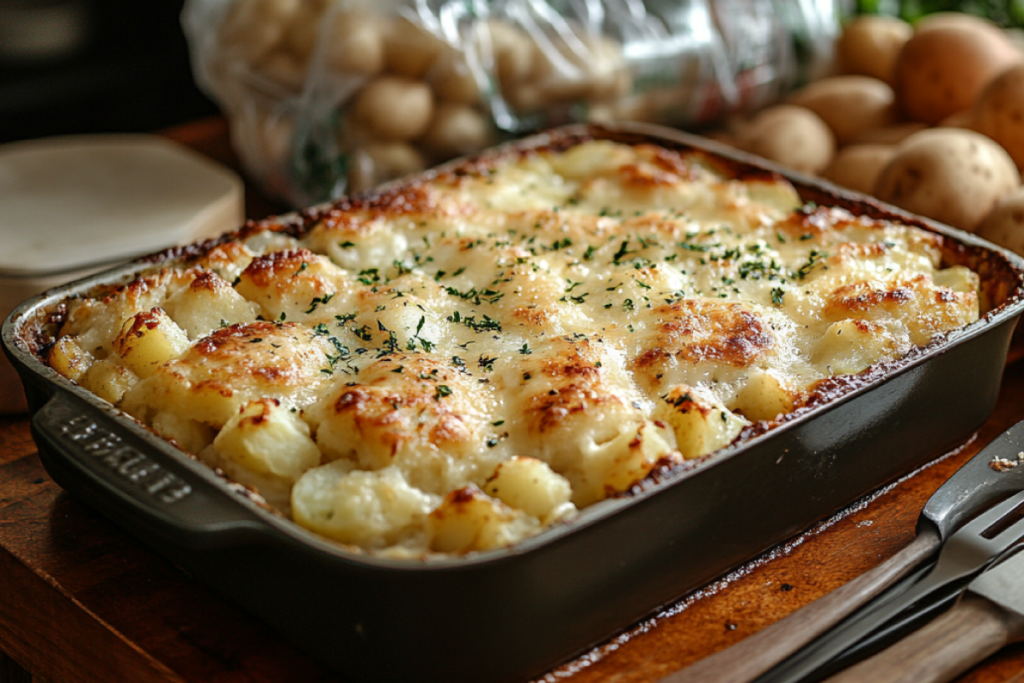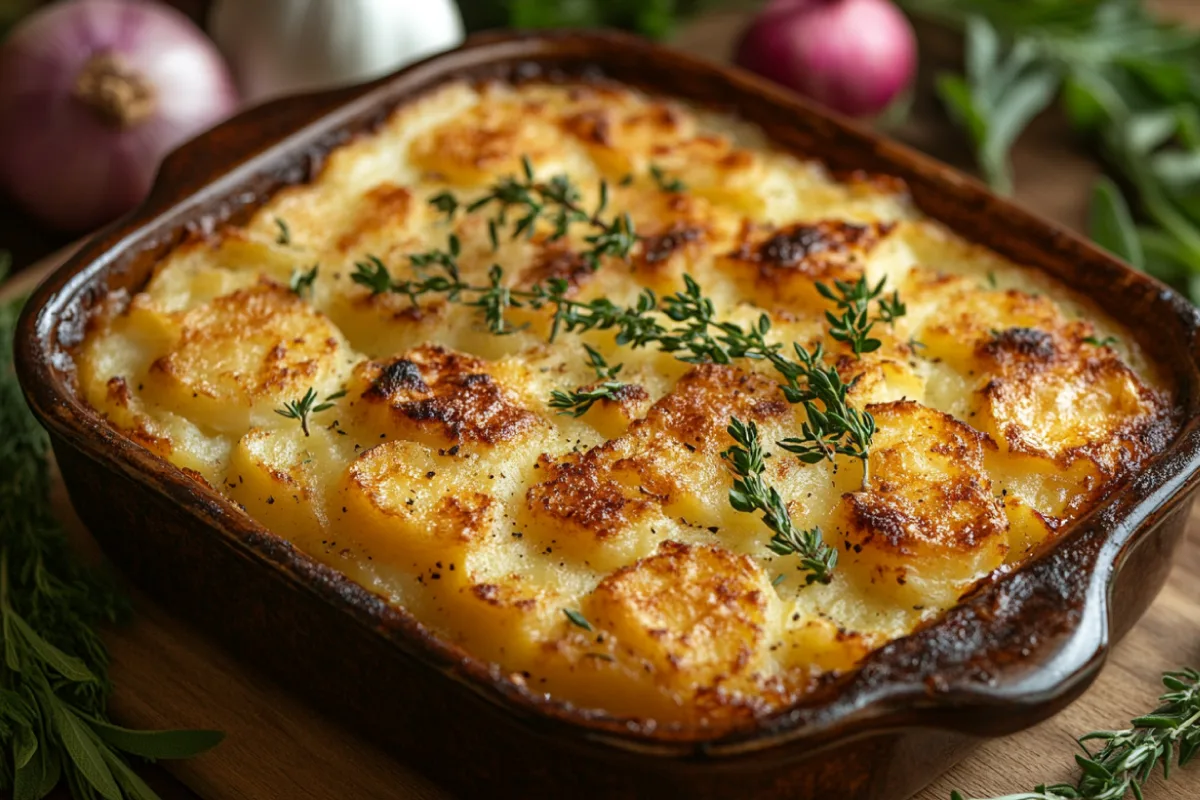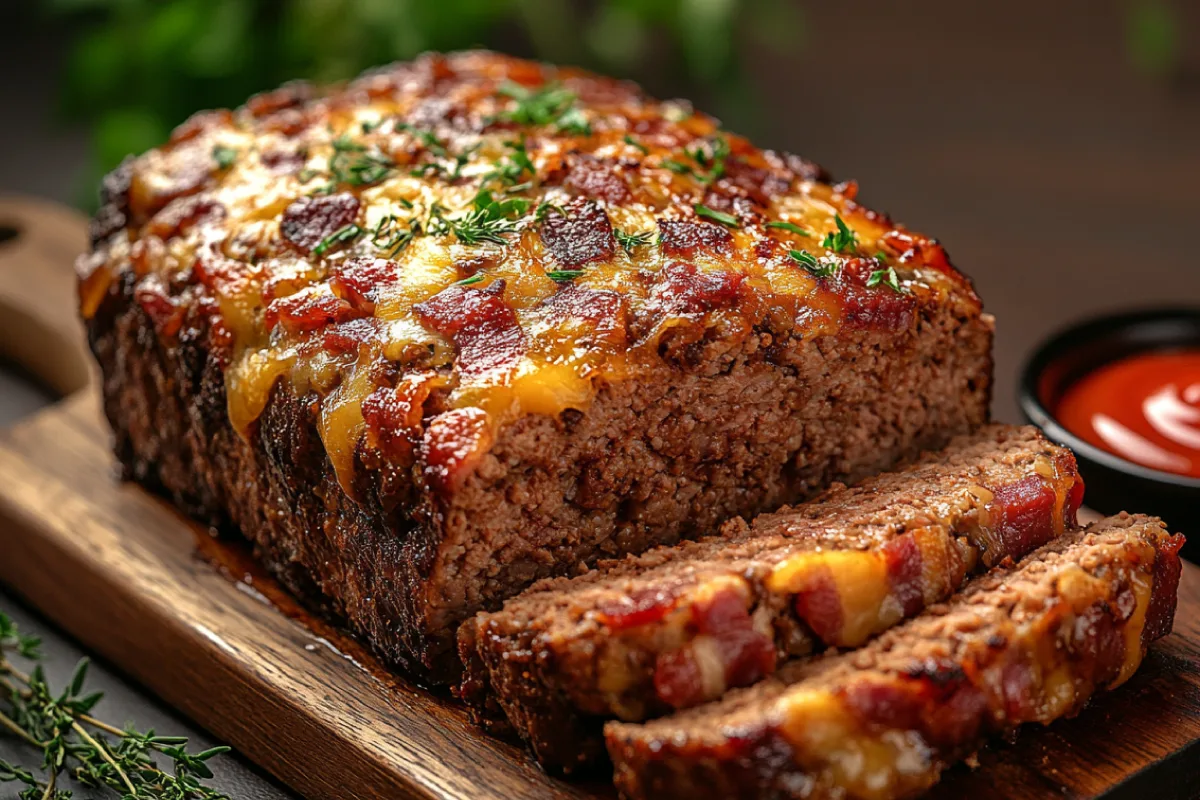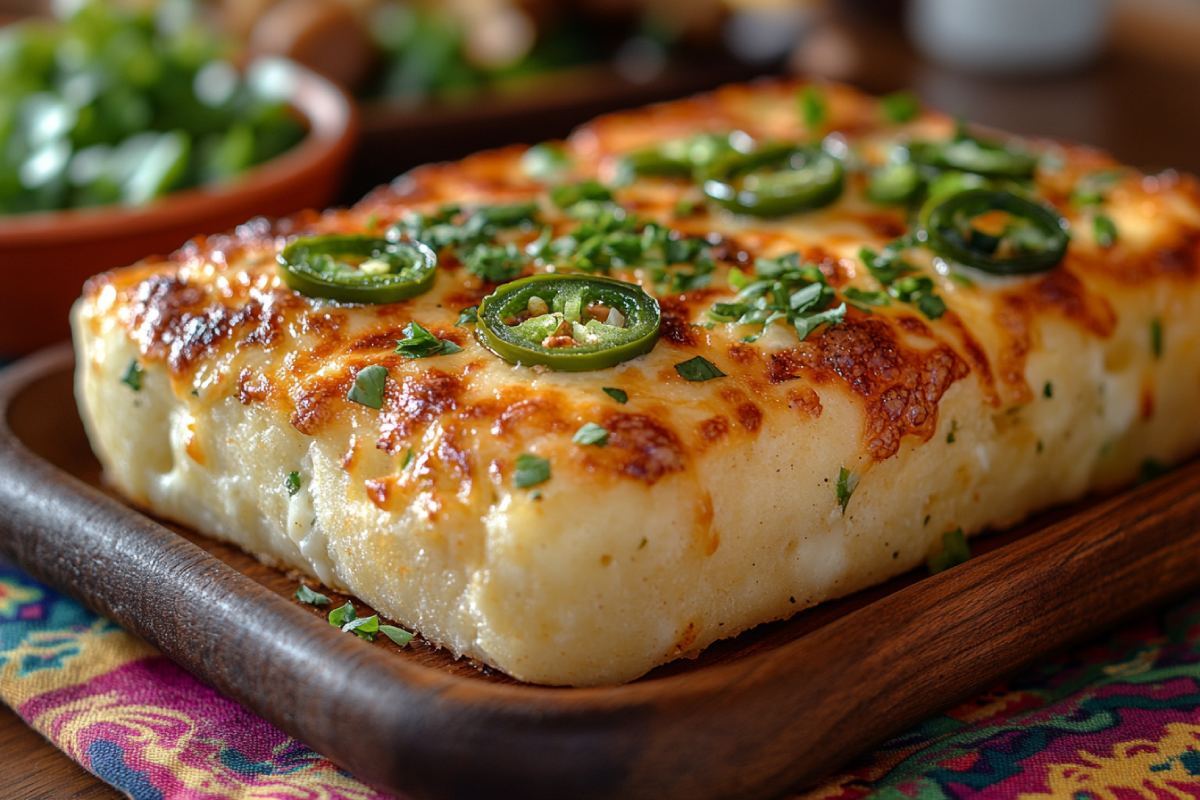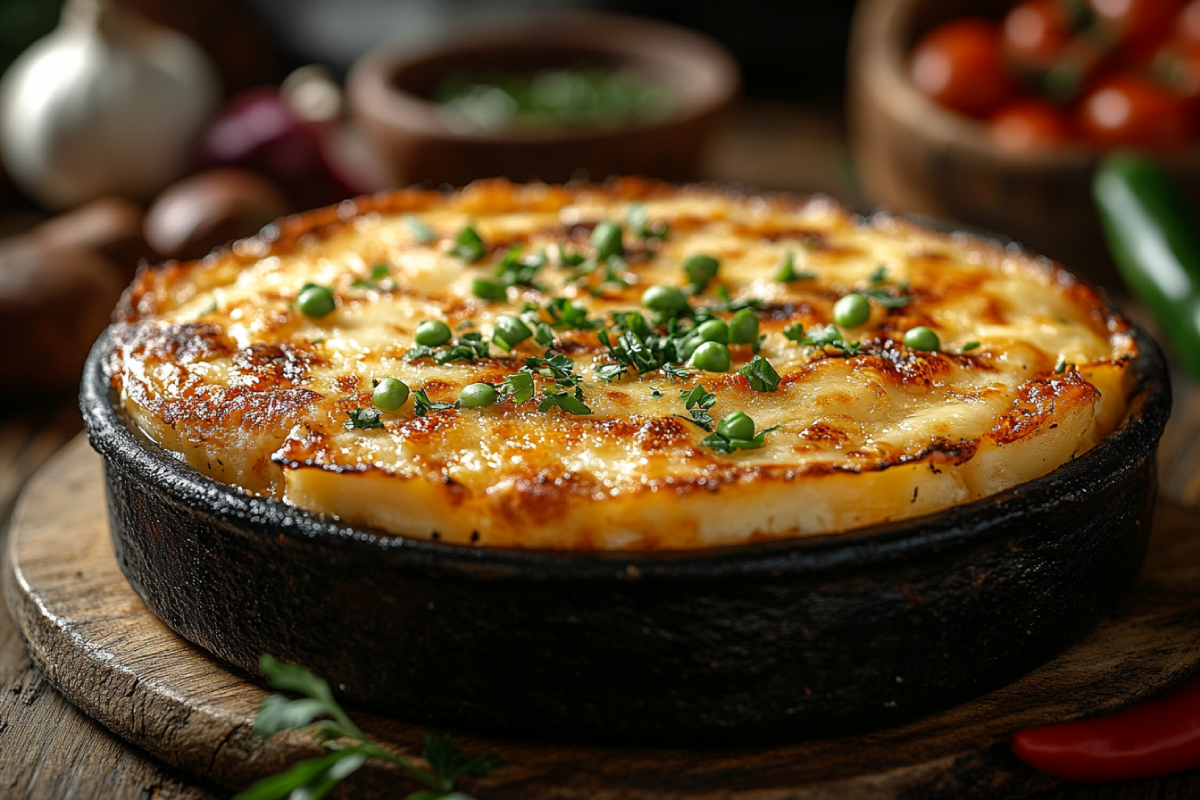“Can I substitute frozen hash browns for fresh potatoes?” is a common question among home cooks looking for a quick and easy solution in the kitchen. The short answer is yes—frozen hash browns can often be used as a convenient substitute for fresh potatoes in many recipes. Their pre-shredded form and extended shelf life make them an excellent choice for busy cooks, especially in dishes like casseroles, soups, or hash.
In this article, we’ll dive into how frozen hash browns compare to fresh potatoes, when and how to substitute them, and what to consider to ensure your dish turns out perfectly.
Understanding Frozen Hash Browns
How Frozen Hash Browns Are Made
Frozen hash browns are essentially pre-cooked, shredded potatoes that have been frozen to preserve their freshness and extend shelf life. During processing, potatoes are peeled, shredded, and often blanched or partially cooked before being frozen. This process helps maintain their texture and color while making them ready for quick use in recipes.
Want to try a recipe that showcases the versatility of frozen hash browns? Check out Hash Brown Potato Soup, a comforting dish perfect for cold days.
Differences Between Frozen Hash Browns and Fresh Potatoes
While frozen hash browns can save time and effort, they differ from fresh potatoes in several key ways:
- Texture: Fresh potatoes retain a firm texture, while frozen hash browns may have a slightly softer or drier consistency due to blanching and freezing.
- Flavor: The natural flavor of fresh potatoes is more pronounced, whereas frozen hash browns may have a milder taste. Some brands may also include preservatives or seasonings.
- Preparation: Fresh potatoes require peeling, shredding, or dicing, while frozen hash browns are pre-prepared, making them much faster to use.
When to Substitute Frozen Hash Browns for Fresh Potatoes
Suitable Dishes for Substitution
Frozen hash browns work well in recipes where shredded potatoes are typically used. Here are a few examples:
- Breakfast Hash or Skillet Meals: Simply cook frozen hash browns directly in a skillet, just as you would with freshly shredded potatoes.
- Casseroles: Perfect for layered or mixed dishes like Christmas Morning Casserole.
- Soups and Stews: They can be added to soups like this Creamy Chicken Tortilla Soup for a thicker, heartier texture.
Timesaving Benefits and Convenience
The biggest advantage of using frozen hash browns is the convenience. Fresh potatoes require washing, peeling, shredding, and sometimes pre-cooking—all steps that frozen hash browns eliminate. For busy cooks or large-scale meal prep, frozen hash browns save time without compromising much on taste.
How to Substitute Frozen Hash Browns for Fresh Potatoes
Adjusting Recipes to Accommodate Frozen Hash Browns
When substituting frozen hash browns for fresh potatoes, there are a few adjustments to consider:
- Cooking Time: Since frozen hash browns are partially cooked, they may require less cooking time than fresh potatoes. Keep an eye on your dish to prevent overcooking.
- Liquid Content: Frozen hash browns may release water as they cook. If you’re using them in a dish like a casserole or soup, reduce other liquid components slightly to account for this.
For more tips on achieving the perfect texture in casseroles, visit What is the Key to Making a Good Casserole?.
Thawing and Draining Tips
For many recipes, it’s important to thaw and drain frozen hash browns before using them to avoid excess moisture. Here’s how to do it:
- Thaw: Spread the frozen hash browns on a plate or baking sheet and let them thaw at room temperature. Alternatively, use the defrost setting on your microwave.
- Drain: Once thawed, pat the hash browns dry with paper towels to remove excess water. For extra assurance, press them gently with a clean kitchen towel.
Proportions to Use When Substituting
A general guideline is to use the same weight or volume of frozen hash browns as the fresh potatoes called for in a recipe. For example:
- 1 cup of shredded fresh potatoes ≈ 1 cup of frozen hash browns.
- 1 medium fresh potato ≈ 1 cup of frozen hash browns.
For larger recipes, scale accordingly, keeping in mind that frozen hash browns are already prepped and may take up slightly less space than fresh potatoes.

Advantages and Drawbacks of Substituting Frozen Hash Browns
Advantages of Using Frozen Hash Browns
- Convenience: Pre-shredded and partially cooked, frozen hash browns significantly reduce prep time.
- Storage: Frozen hash browns can last months in the freezer, whereas fresh potatoes can spoil more quickly if not stored properly.
- Consistency: With frozen hash browns, you get a consistent shred size and texture, which can improve the appearance and even cooking of your dish.
Drawbacks of Using Frozen Hash Browns
- Texture Differences: Frozen hash browns may lack the firm bite of freshly shredded potatoes, especially in recipes where crispiness is desired.
- Flavor: While subtle, the natural taste of fresh potatoes is slightly more robust than frozen hash browns.
- Preservatives: Some frozen hash brown brands include additives or preservatives, which might not be ideal for those seeking a more natural ingredient.
Alternatives to Frozen Hash Browns and Fresh Potatoes
If neither frozen hash browns nor fresh potatoes are available, there are other options that can work as substitutes in various recipes. Here are some common alternatives:
Dehydrated Potatoes
Perfect for soups or as thickeners, as highlighted in Will Instant Potatoes Thicken Potato Soup?.
Pre-Cooked Potatoes
Pre-cooked or canned potatoes are another convenient option. Simply shred or dice them to match the texture needed for your dish. These work especially well in soups, stews, or baked dishes.
Other Frozen Potato Products
Beyond hash browns, other frozen potato products like diced potatoes or tater tots can sometimes be substituted. For example:
- Diced Potatoes: Ideal for soups, stews, or breakfast skillets.
- Tater Tots: While not shredded, tater tots can be crushed and used in casseroles or as a topping.
Root Vegetable Alternatives
If you’re looking to switch things up, try using other root vegetables such as sweet potatoes, parsnips, or carrots. These can be shredded or diced and used in place of potatoes for a unique twist on traditional recipes.

Can I Substitute Frozen Hash Browns for Fresh Potatoes? Here’s Everything You Need to Know
When it comes to cooking with potatoes, many home cooks wonder: Can I substitute frozen hash browns for fresh potatoes? Whether you’re in a rush or just want a simpler way to prepare your favorite potato dishes, frozen hash browns might be a tempting option. In this section, we’ll explore not only the convenience and benefits of using frozen hash browns as a substitute but also delve into the practical aspects of using them in your recipes. This will include cooking methods, flavor profiles, and texture comparisons to help you decide if frozen hash browns are the right choice for your meal.
The Convenience of Frozen Hash Browns
One of the most significant benefits of frozen hash browns is their convenience. When you’re pressed for time, having a bag of frozen hash browns in the freezer can be a lifesaver. Frozen hash browns are pre-shredded and often pre-cooked, which means you don’t need to spend time peeling, chopping, or shredding fresh potatoes. For dishes that require shredded potatoes like breakfast hashes or potato casseroles, frozen hash browns are a quick and easy alternative.
For example, when preparing a dish like hash brown casserole, the texture of frozen hash browns holds up well in the layers of the casserole, and their pre-cooked nature ensures they don’t require as much cooking time. Fresh potatoes, on the other hand, often need extra steps like boiling or frying to get them to a similar point of readiness. So, when asking, “Can I substitute frozen hash browns for fresh potatoes?” the answer is yes, and the time-saving factor is a huge advantage.
Frozen hash browns are also more shelf-stable compared to fresh potatoes. Potatoes, when not stored correctly, can sprout and spoil within a week or two. But frozen hash browns can last for several months in the freezer, making them a perfect pantry staple for meal prep and emergencies.
Frozen Hash Browns vs. Fresh Potatoes: A Closer Look
While frozen hash browns and fresh potatoes can often be used interchangeably, there are several differences you should be aware of before deciding to substitute frozen hash browns for fresh potatoes in your recipes. Understanding these differences will help you make informed decisions about when it’s best to use one over the other.
Texture Differences
When cooked, fresh potatoes offer a firmer texture, especially in dishes like roasted potatoes or fries. This firmness is ideal when you want the potatoes to hold their shape and have that perfect crispiness. On the other hand, frozen hash browns tend to be softer and may lose some of their firmness because they have already been partially cooked before freezing. This can make them a great choice for casseroles or soups, where the softer texture won’t impact the final dish. However, if you’re hoping for crispy potatoes, you may find that frozen hash browns won’t crisp up as well as fresh potatoes.
Flavor Differences
Flavor is another area where fresh potatoes and frozen hash browns can differ. Fresh potatoes have a mild but more distinct natural flavor, which many people prefer in simple potato dishes. In contrast, frozen hash browns have a more neutral flavor, as they’re often blanched before freezing, which can alter their taste slightly. The added preservatives or seasonings in some frozen hash brown products can also influence their flavor, so it’s essential to check the packaging if you’re seeking a more natural taste.
Ease of Use
For those looking to save time, frozen hash browns are the obvious choice. Since they come pre-shredded, there’s no need to spend time peeling and shredding fresh potatoes. They are ready to go straight into the pan or oven. Fresh potatoes, however, require more effort and preparation, which may not always be ideal for busy individuals or families looking to make quick meals.
When and How to Use Frozen Hash Browns in Place of Fresh Potatoes
If you’re asking, “Can I substitute frozen hash browns for fresh potatoes?” the short answer is yes, but how you use them depends on the type of dish you’re making. While frozen hash browns can substitute fresh potatoes in most recipes, there are certain dishes where frozen hash browns work better than others.
Breakfast Dishes
Frozen hash browns are especially popular in breakfast dishes. If you’re making a breakfast skillet, breakfast hash, or even a savory breakfast casserole, frozen hash browns are an excellent choice. They cook quickly and provide a similar texture to fresh potatoes, making them ideal for busy mornings. Since frozen hash browns are already pre-cooked, they’ll be ready much faster than fresh potatoes, saving you time when you’re rushing to get breakfast on the table.
Soups and Stews
Frozen hash browns are also a great option for soups and stews that call for diced or shredded potatoes. Since they’ve already been partially cooked, they’ll absorb liquid and soften up quickly without requiring long cooking times. In addition, the texture of frozen hash browns, when added to soups or stews, gives the dish a creamy consistency, which can be a nice addition to hearty, comfort foods like potato leek soup or chicken potato chowder.
Casseroles
Frozen hash browns work wonderfully in casseroles, particularly in layered dishes like hash brown casserole. The pre-cooked nature of the hash browns makes them perfect for layering with other ingredients such as cheese, meat, and vegetables. Just keep in mind that you may need to reduce the liquid content slightly when using frozen hash browns, as they can release water while cooking.
Substituting in Other Dishes
If you’re making mashed potatoes, you might also wonder, “Can I substitute frozen hash browns for fresh potatoes?” While it’s not the most common substitution, you can indeed use frozen hash browns in mashed potato recipes. However, keep in mind that the texture might be a bit different. The key to making successful mashed hash browns is to ensure they are thoroughly thawed and drained to prevent excess moisture. For the best results, cook the thawed hash browns in a skillet before mashing them to get a better texture.
Tips for Using Frozen Hash Browns
To make sure your dish turns out perfectly when substituting frozen hash browns for fresh potatoes, follow these tips:
- Thaw and Drain: For most recipes, it’s important to thaw and drain frozen hash browns before using them. This will help remove excess moisture and prevent your dish from becoming too watery. Simply spread the frozen hash browns on a plate and allow them to thaw at room temperature. Once thawed, pat them dry with a paper towel or use a clean kitchen towel to press out any remaining moisture.
- Adjust Cooking Time: Since frozen hash browns are partially cooked, they will need less cooking time than fresh potatoes. Keep a close eye on your dish to avoid overcooking, especially in recipes that involve frying or baking.
- Consider the Liquid Content: Frozen hash browns release moisture as they cook, so be mindful of the liquid in your recipe. If you’re making a casserole, reduce the amount of liquid slightly to account for the water that will be released by the hash browns.
Can Frozen Hash Browns Be Used in Mashed Potato Recipes?
As previously mentioned, frozen hash browns can be used in mashed potato recipes, though the texture might not be exactly the same as fresh potatoes. Since frozen hash browns are pre-cooked and already have a softer texture, the final result may be a bit creamier and less firm than mashed fresh potatoes. However, if you’re looking for a quick mash with less prep work, this substitution can work in a pinch.
The Bottom Line: Is Using Frozen Hash Browns for Fresh Potatoes Worth It?
In conclusion, substituting frozen hash browns for fresh potatoes is an easy and effective option for many recipes. While there are some differences in texture and flavor, frozen hash browns offer a convenient and time-saving solution for busy cooks. From breakfast dishes to soups, casseroles, and more, frozen hash browns can seamlessly take the place of fresh potatoes in a variety of dishes.
When using frozen hash browns, it’s important to adjust the liquid content and cooking time to accommodate for the slight moisture they release. With these considerations in mind, you can confidently substitute frozen hash browns in most recipes that call for fresh potatoes, making your cooking process faster and more efficient. Whether you’re cooking for a large family or meal prepping for the week, frozen hash browns can become your go-to ingredient for quick and delicious meals.
FAQs
Does Using Frozen Hash Browns Affect Flavor?
Frozen hash browns generally have a mild flavor similar to fresh potatoes. However, some brands may include preservatives or additives that could slightly alter the taste. Opt for plain, unseasoned hash browns if you’re looking for a natural flavor.
Can Frozen Hash Browns Be Used in Mashed Potato Recipes?
Yes, frozen hash browns can be used to make mashed potatoes, though the texture might not be as smooth as fresh potatoes. For best results, thaw and cook them thoroughly before mashing.
Should You Thaw Frozen Hash Browns Before Cooking?
In most cases, thawing frozen hash browns is recommended, especially for recipes like casseroles or soups where excess moisture could impact the dish. For skillet dishes, you can often cook them directly from frozen.
What Are the Best Frozen Hash Browns for Cooking?
Look for high-quality, unseasoned frozen hash browns with minimal additives. Popular brands like Ore-Ida or store-brand options labeled as “natural” are good choices.
Can I Refreeze Leftover Hash Browns?
While it’s possible to refreeze hash browns, the texture may degrade due to repeated freezing and thawing. If you have leftovers, store them in an airtight container and use them within a few days for the best results.
Are Frozen Hash Browns as Nutritious as Fresh Potatoes?
Frozen hash browns retain most of the nutrients found in fresh potatoes, such as potassium and vitamin C. However, they may contain added sodium or preservatives, so check the packaging for details.
Table of Contents
Conclusion
Substituting frozen hash browns for fresh potatoes is a convenient and time-saving option for many recipes. With proper preparation and minor adjustments, frozen hash browns can replace fresh potatoes in dishes like casseroles, soups, and breakfast hashes. For more tips and recipes that inspire, explore our guide on Mexican Corn Casserole, a delicious side dish perfect for any meal.
Whether you’re a busy cook or experimenting with new ingredients, frozen hash browns offer versatility and practicality. Don’t hesitate to try them in your favorite recipes—you might just discover a new go-to ingredient for quick and delicious meals!

